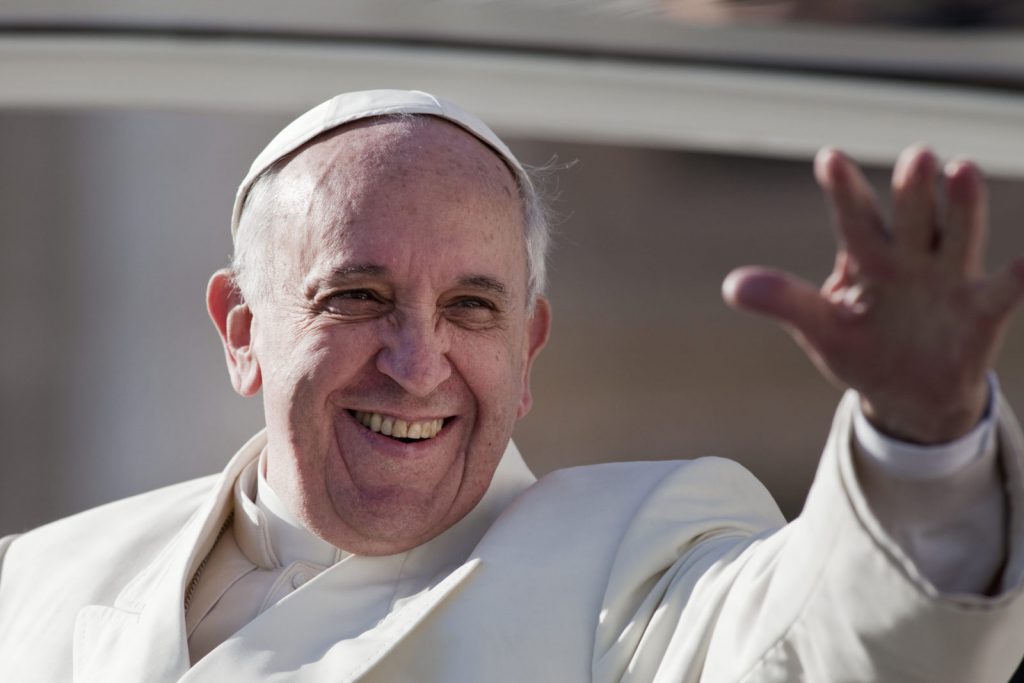
Published March 20, 2020
I first experienced Rome in 1971 on my honeymoon, visiting my wife’s uncle, a priest who served for a decade at the Vatican, with the Congregation for the Doctrine of the Faith. What I remember most vividly is a Fellini-esque evening performance of Aida with elephants in the Baths of Caracalla, followed by a hair-raising, inebriated drive home through Roman traffic. The city then was an electric blend of the sacred and profane: a cocktail of religious piety, garish energy, and opiate nostalgia; repellant and addictive at the same time. I loved it.
I returned for Church-related work in 1985, ’87, ’89, ’97, ’99, 2001, ’14, and ’15, always with roughly the same mix of feelings. In all those visits, the living Catholic soul of the city — if one cared to look for it — redeemed the vulgarity and offered clean oxygen to inhale along with the narcotic scent of memory and ruins. Throughout the tenures of Karol Wojtyla and Joseph Ratzinger, but also well before that in the Pacelli, Roncalli, and Montini pontificates, serious pastoral concerns and serious intellect coincided. They reinforced each other. Exacting Catholic thought mattered; it wasn’t sufficient for faith, but it was seen and respected as necessary. It provided the fertile soil for Christian action. This seemed to continue, or at least not to be stymied, in the first years of the Bergoglio pontificate.
I visited Rome twice in 2018, again for Church-related work. The spirit of the place today is different. Some of my unease doubtless comes from my own age, not the city’s. Skepticism can grow along with one’s years. But the change is too tangible to miss. There are days now when (Catholic) Rome, in the words of a longtime friend who lives there, really does feel like Constantinople must have felt in the last years of the Palaiologoi: a museum surrounded by the hostile and indifferent, curated by the mediocre and confused. The sense of endings is oppressive — a sclerosis of thought and small, crabbed personalities, made more painful by the memory of past excellence, and compounded by a coronavirus that has highlighted the “aging out” of the whole country. For the believer who looks too closely and reflects too long, Rome can be as much a worry as a refreshment. This isn’t new, in a sense. Martin Luther had the same reaction. That didn’t end well.
Today’s Catholic Rome is new for many in my age cohort, though, men and women entering our teens as Vatican II opened, and blessed by a string of gifted popes tested by the extremes of the past century. Jorge Bergoglio is a contrast. He has many strengths. His teaching in Evangelii Gaudium and in much of Amoris Laetitia is strong and inspiring. Likewise his encyclical Laudato Si’ adds new force to previous Church teaching on stewardship of the environment. But his papacy hails from different origins.
His pontificate’s distaste for things American is perplexing, given the loyalty and generosity of American Catholics. But it’s understandable, and arguably justified, from a Latin American perspective, even if ill-informed. His openings to China and Islam, and his seemingly uncritical embrace of immigration, may be mistakes. But again, the Vatican has centuries of experience at playing the long game. It’s possible that time could prove his diplomatic efforts fruitful. U.S. dominance will pass, just as the power of every other empire has passed. It’s also important to remember that the papacy is not the Church. With or without dynamic leadership from Rome, the Church is growing and thriving in many places around the world, often (and increasingly today) in the face of persecution.
Nonetheless, what critics do hold this pontificate — and even more so, its flacks — accountable for is its anti-intellectual resentments and seeming diminishment of Catholic thought; its undermining of a healthy Christian anthropology; its unintended feeding of disunity and confusion; its ignoring legitimate expressions of concern or criticism; and its downplaying the unique and singular nature of the Christian revelation. This pontificate has also, so critics argue, played loose with the notion of truth, thereby conflating mercy with indulgence, treating mercy as a kind of new, trademarked product of this papacy, and detaching mercy from justice, a virtue tied inextricably to truth.
Writing critics off as a gang of right-wing troglodytes, the standard tactic of many of Pope Francis’s defenders, is not just derisive and condescending. It’s also a form of lying. It violates the spirit of synodality and Christian candor that the pope himself has often encouraged. And it won’t work. Catholics have an obligation, rooted in love, to treat the Holy Father — any Holy Father — with the respect due his office. But as in any healthy family, respect does not preclude criticism on matters of substance. Trash-talking about people who voice their concerns respectfully, from conviction, about the direction of current Church leadership, even if they’re misinformed, feeds resistance to Francis and proves the need for more of it. To put it simply: Scorn is a bad way of salving the alienated. Most of the boosters around Francis probably know that. They just don’t seem to care.
Francis X. Maier is a senior fellow with the Ethics and Public Policy Center.











